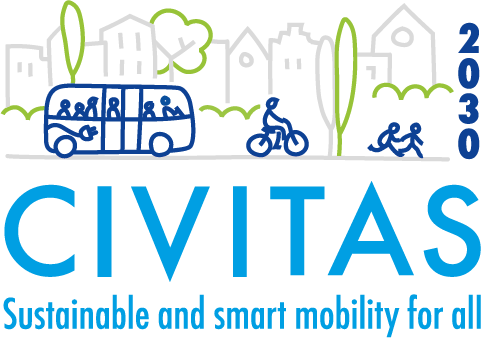
News
Cascade Cities Chart the Path to Replication: Insights from the REALLOCATE Barcelona Consortium Meeting
19 November 2024
During the Barcelona Consortium Meeting & Study Visit in October, the partners participated in a session organised by ICLEI Europe with 3 cities from the Cascade Cities group - Lviv, Tbilisi and Varna.
In preparation for the role as REALLOCATE's replicators, Cascade Cities had been asked to each choose a REALLOCATE pilot they would like to follow throughout the project and of which they would develop a Replication Plan. Lviv chose Barcelona SSML2 – increased and integrated PT accessibility system for people with disabilities, Tbilisi chose Lyon SSML 2 – Lyon’s road safety tech & non-pollution parking policy, and Varna chose Barcelona SSML 1 – Pedestrians, cyclists & MMV in shared spaces.
After three groups, each led by a Cascade City representative, were presented a mobility challenge linked to the topic of a REALLOCATE pilot they're following, the partners exchanged knowledge and real-life examples of solutions to similar problems in other cities and contexts, and supported Cascade Cities in drafting action plans for the future replication of pilot solutions.
Maksym Terletsky from Lviv presented the case of the Lychakiv neighborhood in Lviv - a hub with a very high concentration of medical, educational, and rehabilitation facilities, including a military hospital which has become a temporary home for many soldiers and veterans going through a long-term rehabilitation. The infrastructure and the public transport system on the main street (Lychakivska) are not meeting the needs of people with disabilities. Inspired by the solutions explored in Barcelona, Lviv wants to develop an accessible and inclusive public space for all in Lychakiv neighbourhood, and transform the Lychakivska street into a more accessible space with a barrier free public transport.
Ketevan Makharashvili from Tbilisi talked about the Rustaveli Street in the Varketili District, which, as many areas in the city, is dealing with traffic congestion, inefficient bus systems, and limited integration across its transport network, all contributing to high pollution levels and constrained urban mobility. By optimising bus routes, enhancing transport integration, and promotion of cycling and walking, the city seeks to reduce reliance on private vehicles and create a healthier and more sustainable urban mobility system. Moreover, following Lyon's experience, the city might benefit from well-planned parking tariffication.
Vladimir Minkov from Varna brought up the topic of an increasing number of micromobility vehicles (MMVs), especially in the city centre and the Sea Garden area. Some streets, such as Slivnitsa Boulevard or Knyaginya Maria Luiza Boulevard, don't have cycling paths and that's where MMV users end up using sidewalks and often reaching high speeds, posing threat to pedestrians. Examples from Barcelona show that it is worthwhile to introduce traffic restrictions to shared pedestrian-bicycle-scooter paths, whether it be speed limits, pedestrian-only hours, or different rules depending on the season.
Varna's plan is to collect traffic and user data and implement new traffic rules, contributing to the improvement of safety and attractiveness of these lively areas.
This intensive workshop was a great opportunity for Cascade Cities to learn about similar issues in other parts of Europe and gather ideas, and for the partners to learn about new urban contexts and expand their influence outside of the current scope of the REALLOCATE project.
We're so looking forward to following the progress of Lviv, Tbilisi and Varna, and welcoming more Cascade Cities at the next Consortium Meeting & Study Visit in Gothenburg in June 2025!
Cascade Cities Workshop by "Sylwia Sobiczewska"
All news

This project has received funding from the European Union’s Horizon Europe programme under grant agreement No. 101103924. Views and opinions expressed are however those of the author(s) only and do not necessarily reflect those of the European Union or the European Commission. Neither the European Union nor the granting authority can be held responsible for them.


REALLOCATE is a project under the CIVITAS Initiative, an EU-funded programme working to make sustainable and smart mobility a reality for all, and contributes to the goals of the EU Mission Climate-Neutral and Smart Cities.
